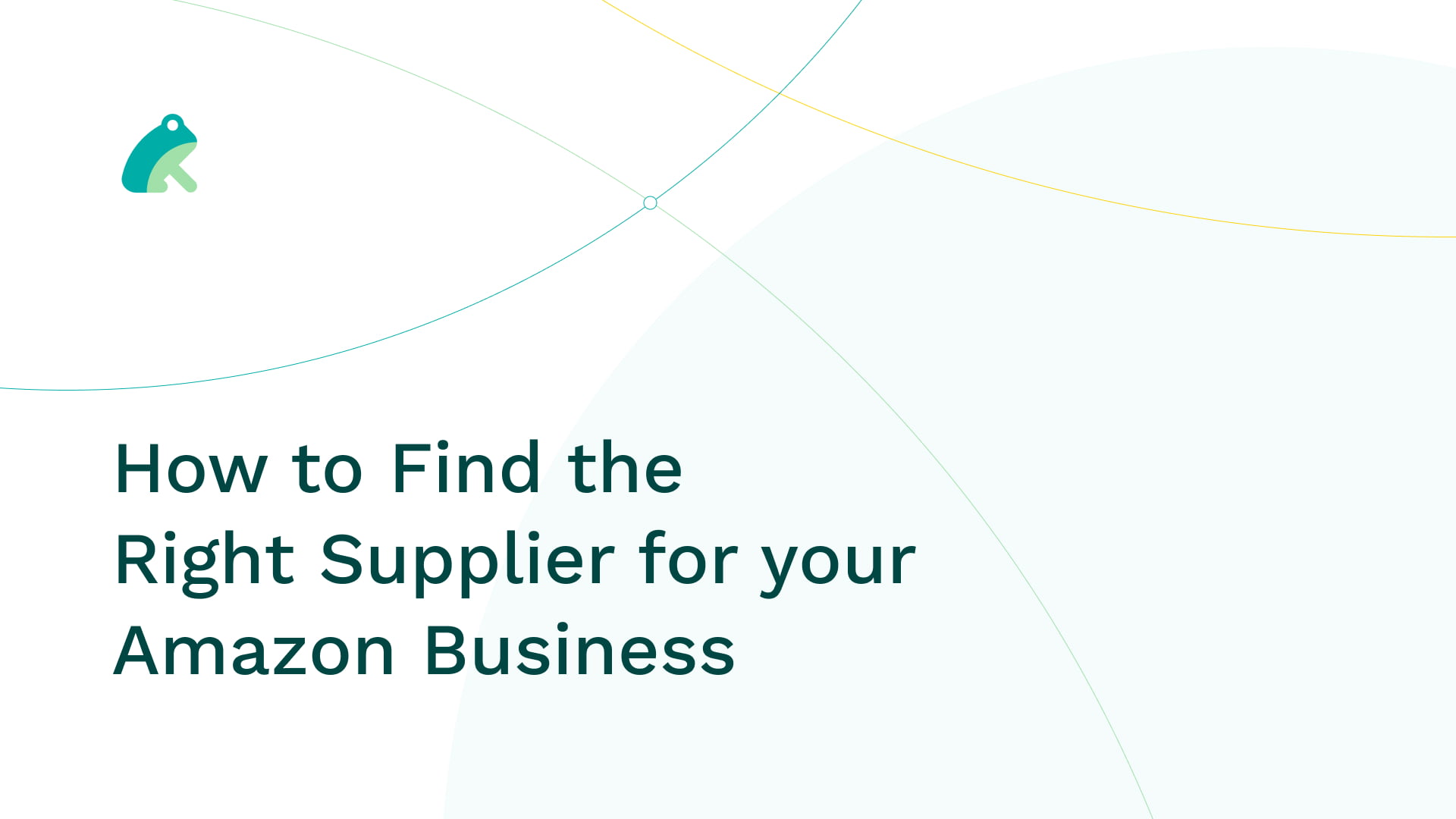How to Find the Right Supplier for your Amazon Business
May 3, 2025
Finding the right supplier for your Amazon business is a pivotal step that significantly influences the quality and success of your products. Here's a comprehensive guide on how to find the right supplier for your Amazon business:

Define Your Product Requirements
Begin by clearly defining your product requirements, encompassing aspects like specifications, quality standards, materials, packaging, and any other pertinent details.
Identify Potential Suppliers
Identifying potential suppliers can be accomplished through a variety of means. Online B2B directories such as Alibaba, Global Sources, and ThomasNet offer extensive options, while attending trade shows and seeking referrals from industry peers can provide valuable leads.
Evaluate Supplier Credibility
It's essential to evaluate their credibility and reliability. Scrutinize their company information, including history and location, and delve into reviews, ratings, and feedback from previous clients. Inquire about certifications or quality control processes they adhere to as a reflection of their commitment to delivering high-quality products.
Engaging in transparent communication is paramount. Gauge their responsiveness to inquiries and their willingness to address concerns, as effective communication is a cornerstone of a successful supplier partnership. Inquire about their language proficiency to ensure smooth interactions.
Request Samples
Always request samples of the products you intend to source. This will allow you to assess the quality, design, and specifications of the products firsthand.
Communicate Effectively
Engage in open and effective communication with potential suppliers:
-
Response Time:
Evaluate their responsiveness to your inquiries and their willingness to
address your concerns.
-
Language Barrier:
Make sure you can communicate effectively with the supplier. Miscommunication
can lead to misunderstandings later on.
Request Quotes and Pricing
Request detailed quotes from your shortlisted suppliers. Compare their pricing, payment terms, and any additional costs such as shipping, packaging, and customization.
Consider MOQs and Lead Times
Minimum Order Quantities (MOQs) and lead times are crucial factors. Ensure that the supplier's MOQ aligns with your business needs, and the lead times are reasonable for your sales cycle.
Visit the Supplier's Facility (if feasible)
Physical visits to a supplier's manufacturing facility can provide invaluable insights into their production processes, quality control mechanisms, and overall working conditions.
Negotiate Terms
Negotiating mutually beneficial terms is crucial. This involves discussing pricing, payment terms, delivery schedules, and any customization requirements you may have.
Perform Due Diligence
Due diligence is non-negotiable. Third-party inspection services can help verify the quality and authenticity of products, adding an extra layer of confidence to your sourcing process.
Understand Export Regulations
Understanding export regulations, import duties, taxes, and customs requirements is particularly important when sourcing products from overseas suppliers.
Build a Relationship
Building a strong, communicative, and respectful relationship with your chosen supplier forms the foundation of a successful partnership. Trust and open dialogue contribute significantly to a productive collaboration.
Consider Multiple Suppliers
Considering the possibility of working with multiple suppliers, especially for critical components or products, can help safeguard your supply chain against disruptions.
Protect Your Intellectual Property
To protect your intellectual property, explore avenues such as patents, trademarks, and legal agreements if you have proprietary designs or branding.
Start Small
A cautious approach is wise when starting a new partnership. Begin with smaller initial orders to assess the supplier's performance and the quality of their products.
Continuously Evaluate and Improve
Even after establishing a supplier relationship, continuously evaluate their performance and consider opportunities for improvement.
Remember, finding the right supplier demands thorough research, diligent due diligence, and effective communication. These efforts are a sound investment that paves the way for long-term success in your Amazon business.